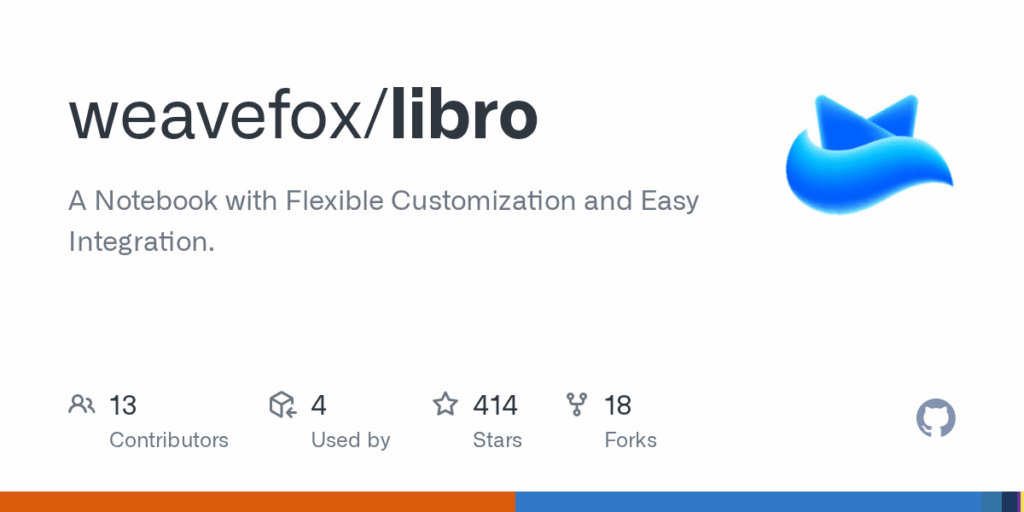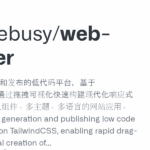libro
Basic Information
Libro is a modular, web‑first notebook product designed to provide a full notebook workbench with easy integration and kernel‑level extensibility. It is distributed as a Python package installable via pip and launched via a simple CLI command that starts a web server and opens the notebook in a browser. The project targets developers, data practitioners and teams who want an extensible notebook environment with built‑in AI workflows and model interaction. The README emphasizes quick start instructions, supported Python versions (3.10–3.12), an architectural overview, and planned improvements such as browser‑side execution and version diff integration. The repo bundles UI features like Prompt Cells and Sql Cells and integration points for LangChain and custom model extensions so users can connect models and databases within notebook workflows.








